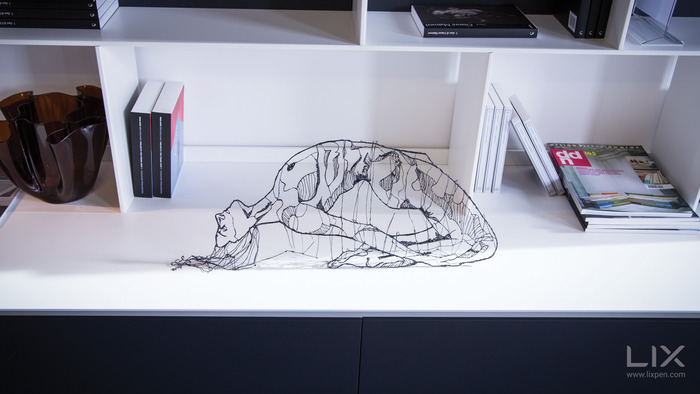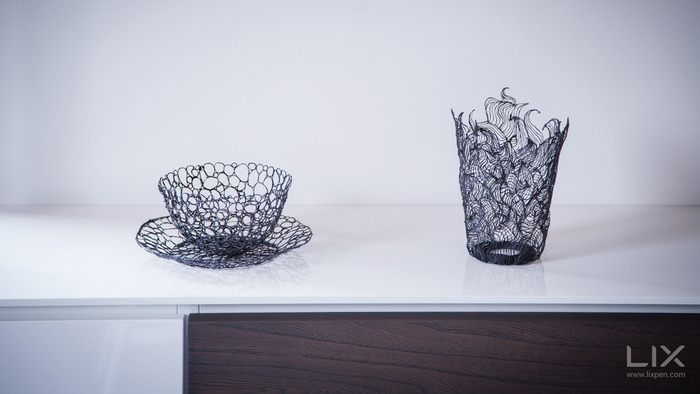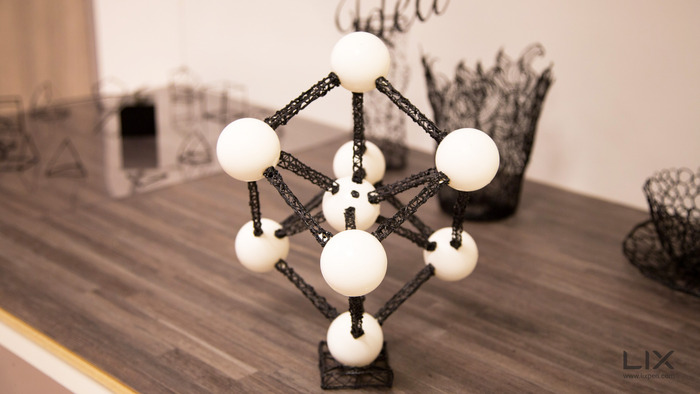When I first became aware of 3D printing I was immediately sold. The idea of being able to manufacture a three dimensional object on demand in my home was ridiculously enticing. That’s about as close as you can get to a Starfleet replicator these days. The only problem is the price point. I have to acknowledge that, like most toys, I would probably play with it a handful of times before it started to collect dust on the desk. Either that or I’d make an army of action figures big enough to actually take over my home.
The point is, they’re expensive, and big. The LIX 3D pen changes that. While it’s not a traditional 3D printer (as if that’s a thing) it does allow you to create (draw) three-dimensional objects in the real world, which you can see in the video below.
The trade in here is there’s no computer to do the work. Instead that part of the process is powered by your personal artistic ability. I’ve seen objects similar to this one before but I’ve never seen on this sleek, and I’ve certainly never seen anyone do this with one.

Or this.

Or this.

The pen uses slim plastic rods that are fed into it similarly to a mechanical pencil. The plastic is then heated and ejected from the pen tip. The LIX team has used it to create simple objects as well as elegant works of art. It can also be used on glass to write a message or to embellish an object you already have. Essentially, as long as you can create a base to work from, you can build from there. And with a machine that lets you draw in the 3D world, the possibilities are pretty much endless. Limited only by how many little plastic rods you have and of course assuming that whatever it is you are doing can be supported by thin lines of plastic.
So while I wouldn’t suggest building any load bearing structures, it’s pretty darn cool. The 3D pen isn’t an ordinary 3D printer, but it’s because of 3D printing that this thing exists. What is essentially a hot glue gun’s wish fulfillment fantasy allows you to make some pretty neat art, that wouldn’t have necessarily been possible (or at least as convenient) before.
LIX created a Kickstarter campaign to fund their invention and it’s proving to be quite successful. Their goal of £30,000 (roughly $50,000) has been eclipsed and it currently sits at £462,429 ($780,071.48).
If you want to get one, you can pre-order through their Kickstarter. (price based on contribution level)